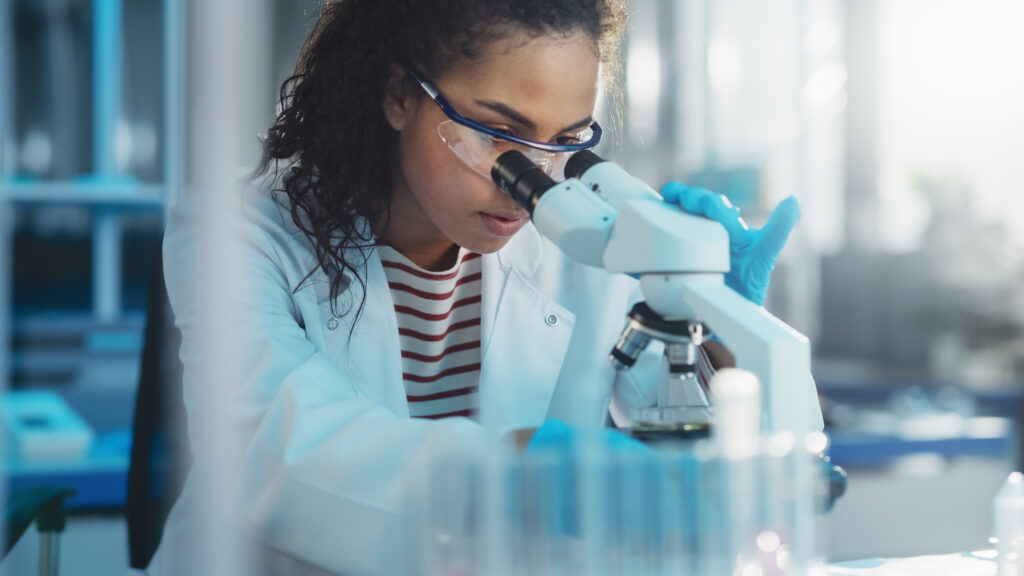Scientists from the University of Cambridge have developed a new AI tool that diagnoses coeliac disease faster and just as accurately as human doctors. This breakthrough could change the way people are diagnosed and treated for coeliac disease.
Coeliac Disease: What You Need to Know
Coeliac disease is a common condition. It affects about 700,000 people in the UK. The disease happens when the body can’t handle gluten, a protein found in wheat, barley, and rye. This causes inflammation and damage to the small intestine.
Symptoms of coeliac disease include diarrhea, weight-loss, and fatigue. Over time, untreated coeliac disease can cause serious health issues, like malnutrition, osteoporosis, and even cancer.
Getting the right diagnosis can be difficult. The symptoms often look like other conditions, and many people go undiagnosed for years.
Current Diagnosis Methods Are Slow
To diagnose coeliac disease, doctors first do a blood test. If the test is positive, patients must then have a biopsy. A biopsy involves taking a small sample from the small intestine and checking it under a microscope.
This process can take time. Pathologists, the doctors who examine biopsy samples, often have a backlog of cases. Because of this, some patients must wait weeks or even months to get their results. Sometimes, these delays are caused by more urgent cases, like cancer, getting priority.
AI Speeds Up Diagnosis
The new AI system is a huge step forward. Trained on over 4,000 biopsy images from five hospitals, the AI can analyze a biopsy in under a minute. This is much faster than the five to ten minutes it typically takes for a pathologist to do the same job.
The AI looks at biopsy images and identifies patterns that show coeliac disease. It works quickly and accurately, providing results almost immediately after the scan is done.
AI Matches Human Accuracy
In tests, the AI proved to be just as accurate as human pathologists. It could identify signs of coeliac disease and the damage it causes. This means doctors could trust the AI’s results just as much as a pathologist’s.
Because the AI can process images quickly, it can speed up the whole diagnosis process. This could be especially helpful in areas where healthcare workers are in short supply or where hospitals are overwhelmed with cases.
Benefits for Healthcare Systems
This AI tool could be a game-changer for healthcare systems like the NHS. In the UK, long waiting lists and busy hospitals can slow down diagnosis. By using AI, patients could get diagnosed faster and start treatment sooner.
Coeliac disease treatment usually involves avoiding gluten, but getting diagnosed early can help prevent long-term health issues. Early treatment can reduce symptoms and prevent further damage to the intestine.
A Step Toward Smarter Healthcare
The AI system could also ease the pressure on pathologists. Instead of spending time on routine cases, they could focus on more complex issues. This would improve the overall efficiency of the healthcare system and reduce waiting times for all patients.
However, there are some challenges. Experts say the NHS would need to invest in IT systems to support the use of AI tools. Healthcare workers would also need proper training to work with the technology.
Experts Caution Against Rushing AI into Use
While the new AI system shows a lot of promise, experts urge caution. Dr. Bernie Croal, President of the Royal College of Pathologists, praised the tool’s potential but warned that it’s important to integrate AI safely.
“We need to ensure that pathologists are properly trained to use this tool,” Dr. Croal said. “AI should support, not replace, human expertise.”
Dr. Croal also mentioned that the AI system is only as good as the data it’s trained on. In order for AI to be truly effective, it must be used alongside trained medical professionals who can ensure that patients receive the best possible care.
Looking Ahead: A Future with AI in Healthcare
The AI system was funded by Coeliac UK, Innovate UK, and the Cambridge Centre for Data-Driven Discovery. If it is widely adopted, it could not only help diagnose coeliac disease more quickly but also change the way many other diseases are diagnosed.
This AI system is just the beginning. Researchers hope to use similar tools for other conditions that require biopsies. By speeding up diagnosis and improving accuracy, AI could change healthcare for the better.
For now, the future of AI in healthcare looks bright. With further development, AI could become an essential tool in diagnosing and treating many diseases.
The Future of Medical AI
In conclusion, the AI tool developed by the University of Cambridge offers a faster and more accurate way to diagnose coeliac disease. By cutting down waiting times, this technology could help patients get the care they need sooner. It could also ease pressure on pathologists, making the healthcare system more efficient overall.
As AI continues to evolve, it could play a key role in transforming the way we diagnose diseases. The potential for AI in healthcare is huge, and we may soon see it being used for many other conditions.


